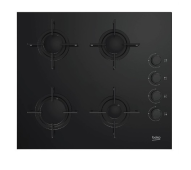I have been looking in to putting a lithium battery in my boat for a while now. I allready have a working solar setup and i still have roof space left that i want to fill with some more solar panels. So my idea was to switch to lithium at the same time and then run a induction cooktop instead of my current propane unit. Reason for this is that the whole propane system needs to be replaced this year anyway, so might as wel ditch it for induction while we are at it.
But the idea is to just run a single bank of 304Ah eve cells on 12v (all electronics on my boat are 12v) and run the cooktop of an inverter, wich i know should work. But the question is has anyone ever done this? I think a 4kw inverter would be the way to go so that the cooktop can use all of its power(rated at 3500 watts 230v ac)
But wil a single bank of EVE cells handle it? And wil the connection on that bank not be a problem? Im a car mechanic, and i cars we use atleast M8 bolts and nuts for a 200A+ load connection, and most lifepo4 cells seem to be only m6?
If someone has any better ideas i would love to hear it as wel. I have tought about buying some 100Ah cells and then run them in a 3p configuration, that way you have 3 m6 terminals spreading the load.
And yes i know, 300Ah isnt that much, but my current battery is only a 90Ah lead acid, and i have NEVER managed to pull that thing to low voltage, and according to my calculation i need about 200Ah to cook food for about 3 days. So even if my solar fails i should have power on board for 2-3 days. By that time i will allready be using my engine again to get to my next destination. The engine has a seperate battery offcourse, but i want to use a dc-dc charger(recommendations for a good 1 for that are welcome as wel)
But the idea is to just run a single bank of 304Ah eve cells on 12v (all electronics on my boat are 12v) and run the cooktop of an inverter, wich i know should work. But the question is has anyone ever done this? I think a 4kw inverter would be the way to go so that the cooktop can use all of its power(rated at 3500 watts 230v ac)
But wil a single bank of EVE cells handle it? And wil the connection on that bank not be a problem? Im a car mechanic, and i cars we use atleast M8 bolts and nuts for a 200A+ load connection, and most lifepo4 cells seem to be only m6?
If someone has any better ideas i would love to hear it as wel. I have tought about buying some 100Ah cells and then run them in a 3p configuration, that way you have 3 m6 terminals spreading the load.
And yes i know, 300Ah isnt that much, but my current battery is only a 90Ah lead acid, and i have NEVER managed to pull that thing to low voltage, and according to my calculation i need about 200Ah to cook food for about 3 days. So even if my solar fails i should have power on board for 2-3 days. By that time i will allready be using my engine again to get to my next destination. The engine has a seperate battery offcourse, but i want to use a dc-dc charger(recommendations for a good 1 for that are welcome as wel)



